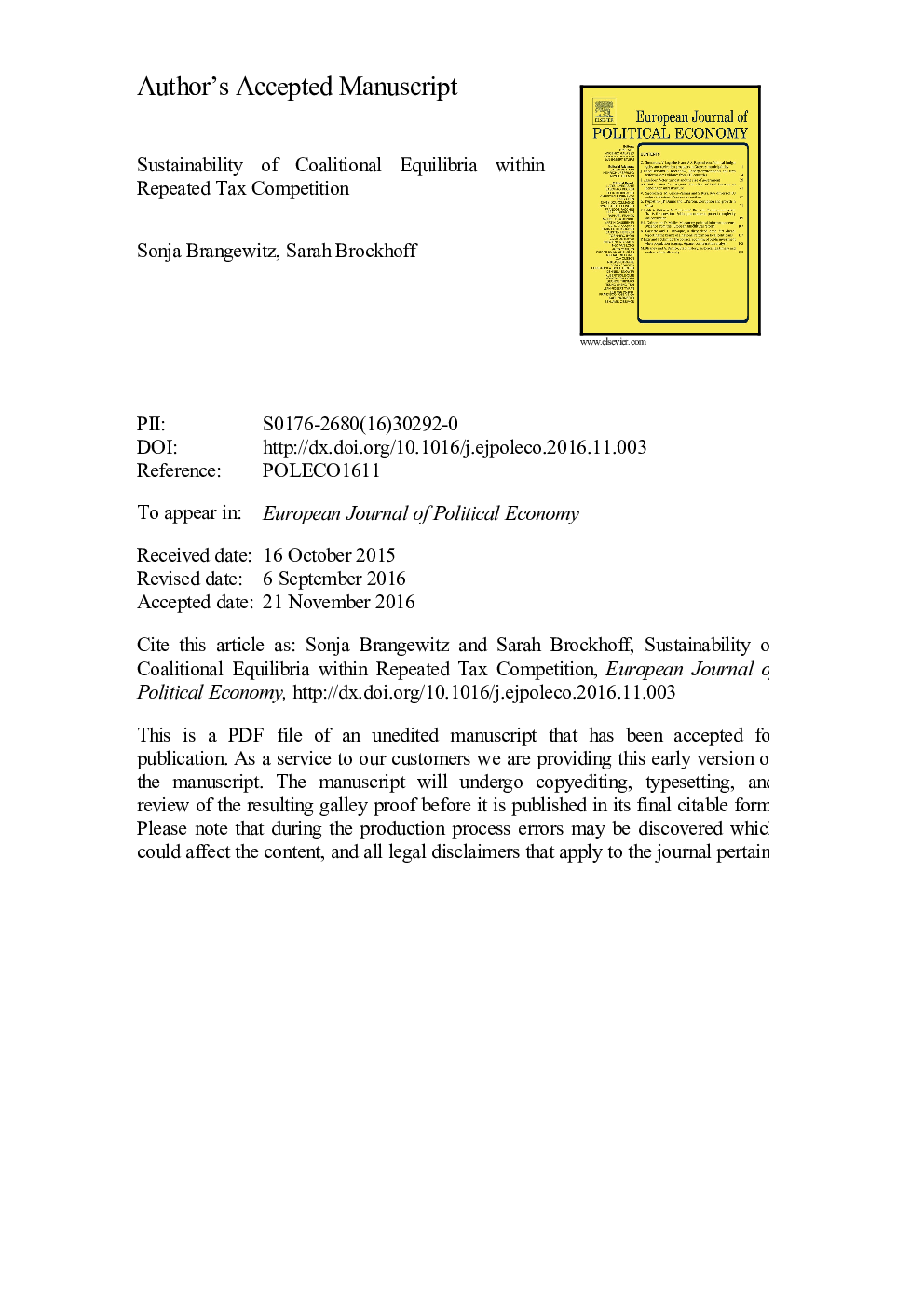| Article ID | Journal | Published Year | Pages | File Type |
|---|---|---|---|---|
| 5067785 | European Journal of Political Economy | 2017 | 30 Pages |
Abstract
This paper analyzes the sustainability of capital tax harmonization agreements in a stylized model where countries have formed coalitions to agree on a common tax rate in order to avoid the inefficient, fully non-cooperative Nash equilibrium. In particular, for a given coalition structure we study to what extent the sustainability of tax agreements is affected by the coalitions that have formed. In our setup, countries are symmetric, but coalitions can be of arbitrary size. We analyze sustainability by means of a repeated game setting employing simple trigger strategies and we allow a sub-coalition to deviate from the coalitional equilibrium. For a given form of punishment we rank the sustainability of different coalition structures. We show that sub-coalitions consisting of singleton regions have the largest incentives to deviate and that the sustainability of cooperation depends on the degree of cooperative behavior ex-ante. Bilateral agreements between pairs of regions turn out to be the form of cooperation that is the easiest to sustain.
Related Topics
Social Sciences and Humanities
Economics, Econometrics and Finance
Economics and Econometrics
Authors
Sonja Brangewitz, Sarah Brockhoff,
